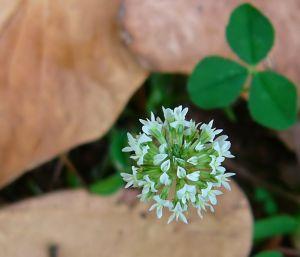China has been utilizing herbal remedies to treat afflictions, diseases, and common ailments for centuries. Alternative medicines and therapies are commonplace in Chinese culture, and often, they succeed in curing or relieving an individual’s particular ailment where Western medicines might fail. Some of the Chinese herbal medicines discussed within this article are currently well-known and increasingly practiced by Western society, while others may be more elusive.
But as America strives to be health-conscious, seeking safer, natural forms of healing rather than prescription drugs and expensive medicines and treatments, we are turning toward herbal remedies, and Chinese herbal remedies in particular, as a popular alternative.
Ginseng and Green Tea are ancient Chinese herbal remedies, and currently used quite regularly in much of the world to treat common ailments. Ginseng is touted as a cure for erectile dysfunction, and is also said to increase energy and stamina, strengthen the immune system, and relieve stress.
The health benefits of green tea are still being studied, but much research has shown that drinking green tea can help reduce the risk of certain cancers, and the tasty beverage also contains a high amount of antioxidants. It is also said to help lower cholesterol and aid in weight loss.
Ginger is often found in much of Chinese cuisine, and its healthful properties have also garnered much attention. Used simply as a spice or as an herbal remedy, ginger can ease an upset stomach, including morning and motion sickness, and aid in digestion. It is also useful for reliving symptoms of irritable bowel syndrome and other intestinal afflictions.
Most of us are also aware of the health benefits of garlic, but did you know that it has played a part of major importance in traditional Chinese medicine for over 5,000 years? Garlic has been utilized as a topical for warts and to stimulate hair growth. New benefits of garlic are continually being discovered and researched, and a shopping list of healthful properties are already attributed to garlic, including treatment of high blood pressure, reducing cancer risk, lowering cholesterol, and much more.
Ginkgo biloba has also been used as a Chinese herbal remedy for over 5,000 years, and has become an important herbal supplement in Western culture in recent years as well. Aside from the high amount of antioxidants present in ginkgo biloba, the medicinal herb is said to stimulate circulation to the brain, helping to reduce the risk of Alzheimer’s disease, Glaucma, and other age-related illnesses. It is also used to help relieve depression and vertigo, and to a lesser extent, asthma, tinnitus, and diabetes, among others. Many studies are still being conducted on this wondrous Chinese herbal remedy.
Chinese skullcap is a member of the mint family. The Chinese utilize the root of this plant along with a combination of other herbs to treat allergies and skin conditions, and to help lower cholesterol. Chinese skullcap is also known to possess a flavonoid called baicalin, which has been proven to aid in strengthening and protecting the liver from infection. The root is often used in a tea by the Chinese.
Many of us occasionally eat Shiitake mushrooms with our meals, especially in stir-fries and other Asian cuisine, but did you know that the Chinese culture has also utilized the shiitake mushroom as a traditional herbal remedy? Used for thousands of years, shiitake is said to relieve cold symptoms and increase energy, and studies have shown that the healthful properties and benefits of shiitake may also be able to help individuals with hepatitis B, and some cancers. It is also said to help reduce the negative ailments associated with chemotherapy.
Another mushroom used in traditional Chinese medicine is the Maitake mushroom. Utilized to a lesser extent, the maitake is said to help strengthen the immune system. Studies and trials are being performed to examine a possible benefit of cancer prevention.
There are many other plants, herbs, and spices used in traditional Chinese medicine, which I will discuss in future articles. To find more information and to purchase some of the herbal remedies mentioned here, you can visit http://www.herbchina2000.com or http://www.activeherb.com
